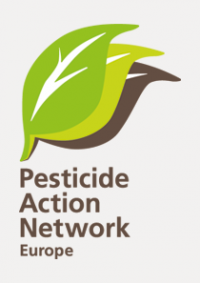Reports
Pesticide cocktails, PFAS and neurotoxins in most European apples
Apples are among the most consumed fruits in Europe. Their local production has intensified over the last decades and their production methods heavily rely on pesticides. Conventional apples are sprayed on average around 30 times a year with pesticides.
Unseen and Unregulated: TFA, the ‘forever chemical’ in Europe’s Cereals
This report presents the first EU-wide assessment of trifluoroacetic acid (TFA) in conventional cereal-based food products and reveals alarming levels of contamination across Europe. TFA is a highly persistent and reprotoxic chemical that currently escapes monitoring by food safety authorities, making these findings unprecedented at the EU level.
Farming beyond pesticides: success stories from the field
All over Europe, farmers and municipalities are proving that food can be produced in a healthy, caring, fair and ecological way, without pesticides or with a minimal amount. Many farmers across Europe have already managed to phase out pesticides or substantially reduce their use.
Manufacturing Doubt: How Industry Downplays TFA’s Toxicity
TFA is an ultra‑short PFAS (per- and polyfluoroalkyl substance) and the final breakdown product of several PFAS, and particularly PFAS pesticides. It has become one of Europe’s most widespread yet overlooked pollutants. Exceptionally persistent, highly mobile and soluble, TFA travels easily through soils, accumulates in groundwater, and contaminates our drinking water and food.
The Forever Chemical in our Daily Bread
The worrying rise of TFA in cereal products
PAN Europe - Activity Report 2024
In 2024, we made important steps in banning some of the most hazardous pesticides. On the other hand, a real setback was the complete withdrawal by the EU Commission of its flagship pesticide legislative proposal from the EU Green Deal. The upgrade of the Sustainable Use of Pesticides Directive (SUD) to a Regulation (SUR) should have resulted in legally binding measures to achieve a 50% reduction in pesticide use and risk in general and 50% reduction in use of the more hazardous ones by 2030.
Message from the bottle
The Rapid Rise of TFA Contamination Across the EU
This report presents an investigation into trifluoroacetic acid (TFA) contamination in wine carried out across ten European wine-producing EU countries by members of the European Pesticide Action Network Europe (PAN Europe). Our findings reveal an alarming and rapidly intensifying environmental issue that has remained unnoticed for too long by the public and policymakers alike.
Licence to Kill - an EU guideline with far-reaching consequences
Europe is facing a catastrophic collapse of biodiversity, with arthropod populations plummeting at an alarming rate. In some regions, insect biomass has declined by an alarming 75% over approximately 25 years. The scientific evidence is clear: habitat loss, industrial agriculture, and rampant pesticide use are the primary drivers of this decline.
See the summary in English, German, Bulgarian, Spanish, French, Italian, Dutch and Portuguese.
Double standards, double risk: Banned pesticides in Europe’s food supply
24/09/2024, Brussels - Hazardous pesticides banned in Europe are currently produced by European companies and exported to third countries, where safety regulations are generally weaker. The use of these toxic pesticides has devastating impacts on both human health and the environment, leading to widespread human rights violations.
